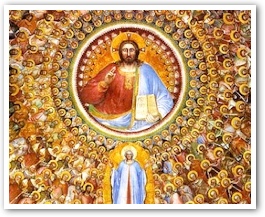In Mark's Gospel, Jesus affirms that the dead will rise, because the Old Testament refers to God as the God of guys who have died--"Abraham, Isaac, and Jacob." Therefore: He is not the God of the dead, but the God of the living (Mark 12.27).
1. During Quarter 2, we will learn and quiz on Roots 1-40 (acer - crea). Right now, copy the first ten into your vocabulary notes (acer - arch) with a definition and a few sample words. As you have time, practice by writing sentences with words with these roots in them.
2. Continue Working on your Lit Analysis essay 3. See the blog post from Tuesday (below) for a guide, expectations, reminders, and tips. We will have 40-50 minutes; you may take it home to finish this weekend and turn in Monday (if you like).
3. Head to our Google Drive folder in the app, and download all items from the "Great Expectations Folder." You may place them in your "Reading Notes" section of Notability or in a new category titled "Great Expectations.
*Begin Journal #12.
*As we have time, we will begin discussion about the Great Expectations Introduction.
HW--Have Great Expectations ready to read on 11/2.
Finish your Lit Analysis Essay 3 and submit handwritten copy on Monday.
Stick to your Indie Reading Plan.

